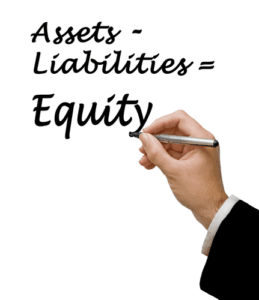Content

Data like transactions, expense accrual and other financial information can be accounted for in the completion of bookkeeping tasks. Bookkeeping can be an essential function of running an organization, as it allows for tracking all financial information that is needed to make sound financing and operating decisions. Unlike the journal, ledgers are investigated by auditors, so they must always be balanced at the end of the fiscal year. If the total debits are more than the total credits, it’s called a debit balance. If the total credits outweigh the total debits, there is a credit balance.

Read some of our recent reviews and see what it could be like having Bench on your books. If you choose to go the route of hiring a bookkeeper, congrats! We recommend taking the time to find a bookkeeper you can trust a great deal. Check out our helpful guide for deciding when is the right time for your business to invest in hiring a bookkeeper. If all your mental powers have been focused on getting your business off the ground, you might not yet fully understand what a bookkeeper does. In this guide we break down the day-to-day role of a bookkeeper, and why a good one is worth holding onto.
Methods of Bookkeeping
Your books won’t be helpful if they are incorrect or missing information. Being an accountant requires certification, which means an accountant can be a bookkeeper, but a bookkeeper can’t automatically be considered an accountant. It is, in many instances, essential to engage in bookkeeping in order to comply with money laundering regulations. Without proper bookkeeping, the owners cannot know the worth of the business. Otherwise, checks might bounce and an unproductive surplus may build up.
- I had a confusion regarding bookkeeper and accountant, this article helped me understand the difference between them.
- Cash-based, you recognize revenue when you receive cash into your business.
- The single-entry method will suit small private companies and sole proprietorships that do not buy or sell on credit, own little to no physical assets, and hold small amounts of inventory.
- Locking the books so the books cannot be changed after the end of period closing has been completed .
- On the left side of the ledger, you’ll have assets and expenses.
- Record every transaction in your books under the correct account.
They will compel men of business to show their books and disclose the secrets of their affairs. On the one hand the inspector can blackmail the taxpayer and on the other, he can profit by selling his secret to his competitor.
Internal management reports
Record inventory as you receive it and record expenses when you pay them. You may be wondering what’s the difference between bookkeeping vs. accounting. There are several types of accounting certifications that accountants obtain to expand their skill sets and gain positions within larger organizations. In addition to CPA credentials, other common accounting designations are chartered financial analyst and certified internal auditor . The procedure makes it possible to apply the algorithm of double-entry bookkeeping in analyzing and presenting the financial position and development of pay-as-you-go pension systems.

The point here is that hiring a CFA means bringing highly advanced accounting knowledge to your business. A CPA is an accountant who has met their state’s requirements and passed the Uniform CPA Exam. They must also meet ongoing education requirements to maintain their accreditation. Accountants’ qualifications depend on their experience, licenses and certifications.
What Is Bookkeeping? The Truth Is in the Numbers
Bookkeeping is the process of recording your company’s financial transactions into organized accounts on a daily basis. It can also refer to the different recording techniques businesses can use. Bookkeeping is an essential part of your accounting process for a few reasons. When you keep transaction records updated, you can generate accurate financial reports that help measure business performance. Detailed records will also be handy in the event of a tax audit.
- In either case, consider handling the accounting yourself or delegating this responsibility to one or a few of your current employees.
- In the Accrual method, bookkeepers record the financial transactions immediately.
- She has a choice among stenography, bookkeeping, and machine operating.
- There are lots of free bookkeeping courses out there that can provide SMEs with a grounding in the discipline.
- Bookkeepers also have the responsibility of reconciling accounts, verifying receipts, preparing deposits, processing payroll, purchasing, monitoring accounts receivable, paying bills and much more.
- This guide will walk you through the different methods of bookkeeping, how entries are recorded, and the major financial statements involved.
They can also usually take care of some of the tax preparation so that your accountant has less to do . But they won’t be able to help you with tax planning or handling your tax return. Priest bookkeeping for small business allegedly directed the bookkeeper to withhold funds paid by students for snacks and sundries and to use the cash to purchase more such items to be sold to the students, according to Smith.
types of bookkeeping for small businesses
The two foundational tasks in small business bookkeeping are data entry and bank reconciliation. Let’s walk through the core duties, common additional duties, and advanced bookkeeping.
This makes them convenient for very small businesses but too simplistic for enterprises. In general however, the single-entry method is the foundation for cash-based bookkeeping. Transactions are recorded as single entries which are either cash coming in or going out.
Benefits of computer software
The bookkeeper receives shipment information from the shipping department and uses it to prepare billings to customers. The bookkeeper also makes collection calls to customers whose invoices are overdue for payment. As part of the billing process, the bookkeeper also remits sales taxes to the government. Sage Intacct Advanced financial management platform for professionals with a growing business. Expert advice and resources for today’s accounting professionals. If you’re unfamiliar with local and federal tax codes, doing your own bookkeeping may prove challenging.
- Micro businesses and sole traders may find it more cost-effective to do their own bookkeeping and give their accountants access to their records.
- Accountants take that financial data and help you see the bigger picture and the path your business is on.
- Debits and credits are the two types of transactions that make up bookkeeping.
- If the two totals do not agree, an error has been made, either in the journals or during the posting process.
- These articles and related content is provided as a general guidance for informational purposes only.
- The bookkeeper collects timesheet information from employees and pay rate information from the human resources department, and uses these inputs to prepare a periodic payroll.
- Bookkeeping is an essential part of your accounting process for a few reasons.
